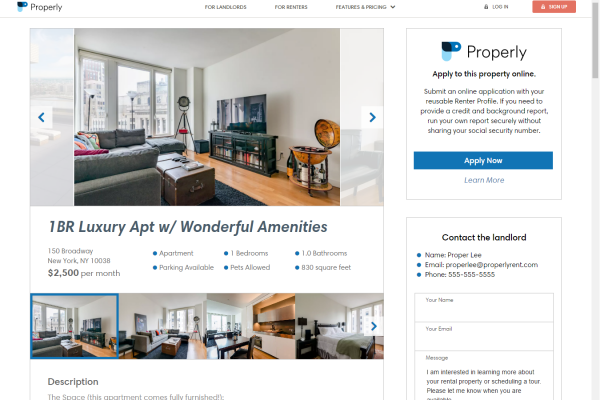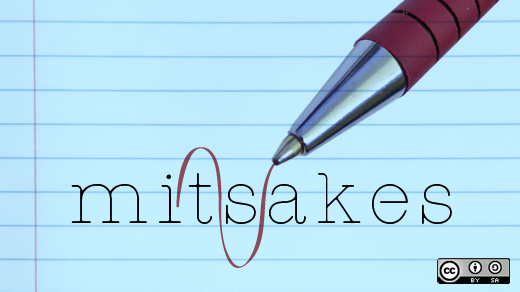There are many articles written about the most common mistakes made by landlords. Why not learn from other people’s missteps? However, the majority of these articles are written by one person which makes it difficult to tell if the mistakes were from just that one writer’s experience or from multiple sources. If multiple, how many? In what markets? Are they do-it-yourself landlords or professional property managers?
I am a big proponent of leveraging online communities and social networks when it comes to gathering actionable advice on how to be a landlord. Many of the comments posted are from real life landlords from all over the country who are sharing their stories and experiences.
One of the biggest real estate social networks is BiggerPockets. They run a forum, landlord and rental property questions, that has an active user base where there are new posts every several minutes.
A favorite thread of mine is “The Top 5 Landlord Mistakes” (you will find the thread stuck right at the top of the discussion list). This thread is a gold mine for identifying the most common landlord pitfalls with approximately 150 posts spanning 7.5 years. However, it does take a long time to read them all so I created a cliff notes version. As I read through the comments, I paid attention to:
1) the frequency that a mistake was identified AND
2) the answers with a high number of upvotes.
Similar mistakes were grouped in the same category.
And finally, the big unveil…here are…drum roll please…the consensus top landlord mistakes:
- Not understanding finances / having unrealistic expectations about cash flow
– Overpaying for a property
– Setting rent improperly / not raising rent
– Underestimating operating expenses
– Inadequate cash reserves for big cash expenses i.e. a significant repair
– Not understanding the accounting side i.e. taxation, depreciation, equity, etc.
- Poor tenant screening
– Improper screening process / criteria
– Accepting incomplete paperwork
– Not asking for proof and/or not verifying information on applications i.e calling references and obtaining tax returns, w2’s, bank statements
– Ignoring “gut feeling” and red flags on applicants
- Not knowing how to manage tenants
– Not enforcing the terms of the lease
– Too trusting and lenient
– Not charging tenants for damage
– Not evicting fast enough
- Not treating it like a business
– Not having a business plan
– Not being professional – i.e. separate phone line, being dispassionate
– Co-mingling business and personal funds
- Not knowing the laws in the state
– Laws vary by state; not reading up on or understanding own state’s laws.
.
- Renting to friends and employees
– And losing relationships as a result.
.
- Treating the rental like it’s “only a rental”
– Bare minimum effort
– Cutting corners on repairs and upkeep
– Cheap furniture and décor
– Leaving a weak flushing toilet (expect many plumbing issues)
.
- Not making periodic inspections of the unit
– Being unaware of how tenants are treating the property and what repairs are imminent
What do you think of this list of top landlord mistakes? Any others you think definitely belong on it?
Photo is courtesy of Opensourceway Flickr Photostream



I’ve been a landlord of our basement apartment and I think the biggest mistake I’ve made is underestimating the energy it takes to manage a property. It’s easier having it as part of the property we live in, but honestly something can go wrong at any time. It’s so important to have cash reserves or at minimum access to capital, but it’s even more important to realize that the property could sit empty for months and months and you really can’t count on the cash flow being there 100% of the time.
DC – Definitely important advice. Landlords shouldn’t rely on rent cashflow to pay other bills. The problem is cashflow is unpredictable i.e. like you said, tenants can leave. Also, unexpected major repairs can cost months of rental income.
Relying on cashflow leads to a great deal of stress.
I rely on my cash flow to pay all of my bills as being a landlord is my only “job” now. The key is margin. Enough cash flow has to be there to withstand vacancy and rental expenses. And reserves / access to capital is important as well in the event one goes through a rough stretch.
Frankly, I feel much more financially secure as a landlord then I ever did in corporate america. A corporation can fire you at any time.
Thanks Midwestern, good points. In my prior comment, I should have said with *many* landlords shouldn’t rely on rent cashflow.
It sounds like you manage multiple rental units which certainly diversifies the risk vs. landlords who manage 1 or 2 units. Sufficient capital reserves mitigate that risk even further.
Good to hear about your success as a landlord. Keep it up!
I think you nailed all the big ones! Poor tenant screening, not raising rents regularly, and failing to collect rents on time or evict tenants are all HUGE. The whole purpose of having the investment is to make money at it.
You can be the nice guy landlord by treating your tenants well, staying out of their hair as much as possible, and making sure everything stays in good working order. But you can’t be the nice guy landlord by discounting rent too much or failing to follow through on collecting it. That makes it a charity, not a business, and your “charity” is probably going to flop if you can’t get consistent cash flow in to pay the mortgage and expenses.
Thanks Yetisaurus. I couldn’t agree more with you.